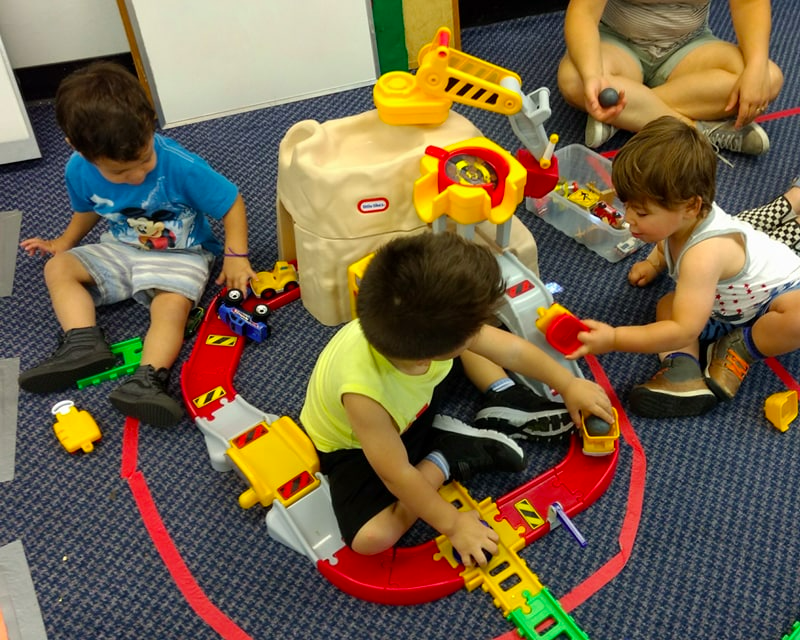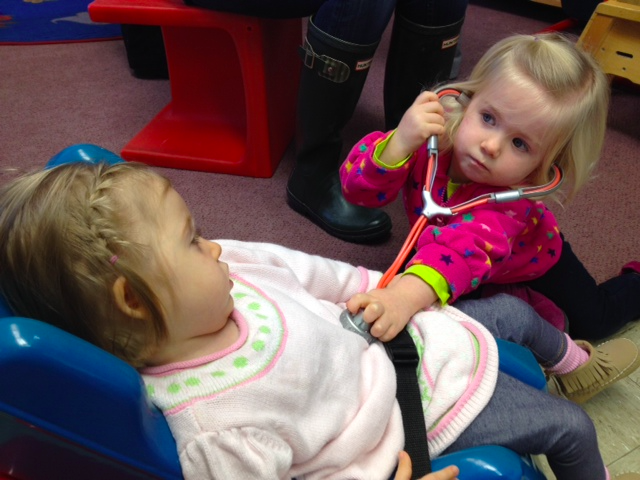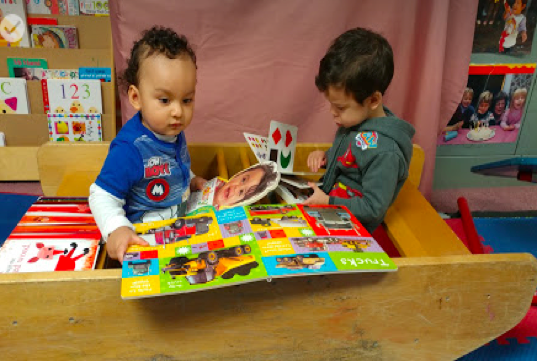
“Early intervention oriented me at a vulnerable moment in the lives of my children and put me on a lifelong path of care and advocacy for them.”
These words were shared with me by a mother whose daughter, a recipient of early intervention services, was preparing to start college.
As the director of an early intervention program, I was reminded again of the long-lasting benefits of early intervention. Children receive the support they need at a critical stage in their lives, and their parents develop confidence and skills through their partnership with caring professionals.
The importance of early intervention
Decades of neuroscience and behavioral research have confirmed that tremendous growth in brain development occurs during a child’s early years. When children are at risk for a developmental delay, tracking children’s development and making sure they reach developmental milestones can help ensure that problems are detected and addressed early.
Early intervention connects children and families to the services and supports they need to reach their full potential. Services with qualified experts in the field have been shown to make a difference in children and families’ lives. A number of studies have shown positive outcomes for children across developmental domains, including language and communication, cognitive and social/emotional development. Parents of children receiving these services are also better able to meet the needs of their child.
Overview of the Early Start Program
The Early Childhood Technical Assistance (ECTA) Center defines the Program for Infants and Toddlers with Disabilities (Part C of the Individuals with Disabilities Education Act – IDEA) as a federal grant program that assists states in operating comprehensive programs of early intervention services for infants and toddlers with disabilities, ages birth through 3 years, and their families. Congress established this program in 1986 in recognition of “an urgent and substantial need” to “enhance the development of infants and toddlers with disabilities; and, enhance the capacity of families to meet their child’s needs.”
In California, the early intervention program serving infants and toddlers with or at risk for disabilities and their families is called the Early Start Program. The state Department of Developmental Services and the State Department of Education both provide services and support.
The California State Department of Developmental Services and Regional Centers are responsible for providing required early intervention services for the majority of children who are eligible. The state Department of Education is responsible for infants and toddlers with visual, hearing or severe orthopedic impairments. Both departments rely on high-quality programs and qualified personnel to address the complex and diverse needs of these children and families.
Eligibility

Eligibility for the Early Start Program is determined by a review of records which can include medical records, information obtained from parents and an evaluation administered by qualified personnel such as occupational and physical therapists and/or speech pathologists.
Children from birth to age 36 months might be eligible for early intervention services through Early Start if they meet one of the following criteria:
- They have a developmental delay of at least 33% in cognitive, communication, social or emotional, adaptive or physical and motor (including vision and hearing) development.
- They have an established risk condition with a high probability of delayed development.
- They are considered at high risk of having a substantial developmental disability due to a combination of medical risk factors.
Family-centered approach
Early intervention recognizes the role of families in the integration and carry-over of strategies and in optimizing their child’s development.
Therefore, because early intervention services are family centered, families play an important role in the services provided. Services are based on an Individualized Family Service Plan (IFSP) and developed around the child’s needs as well as the family’s concerns and priorities. Early intervention services can include occupational and physical therapy, speech and language services, special instruction from teachers who specialize in supporting and understanding the social, emotional and cognitive development of young children and family support. These are provided by early intervention specialists, occupational and physical therapists and speech pathologists.
Impact of the pandemic

During the pandemic, young children’s participation in community activities that might have resulted in a referral to Early Start, such as child care or mommy-and-me programs, may have been suspended. Well-baby visits to their pediatricians may have been delayed. As a consequence, referrals to Early Start have decreased tremendously.
However, Regional Centers and local educational agencies are operating and available to families. If you are concerned about your child’s development, a simple phone call can start the process toward securing essential early intervention services.
Prior to COVID-19, most early intervention services were provided in person through home visits, center-based activities or clinic visits. Many of these services are now being provided online but follow the same principles and strategies. Early intervention professionals continue to follow a family-centered approach, making sure that families’ goals, values and needs are the driving force in the delivery of services. Recommended strategies include coaching families in a child’s natural environment and promoting parent-child interactions that support the child’s development in the context of everyday routines and activities.
Early intervention resources
Early intervention services can be critical in this very early stage of a child’s life. As a parent, you know your child best.
- If you have concerns about your child’s development contact your local Regional Center for a free developmental assessment.
- For a comprehensive look at how referrals work, consult the referral chart at www.ceitan-earlystart.org.
- Family Resource Centers can assist you in navigating the Early Start system.
- Information about developmental milestones can be found at www.cdc.gov.
Annie R. Cox, M.A. is executive director of CHIME Institute’s early education programs.
























